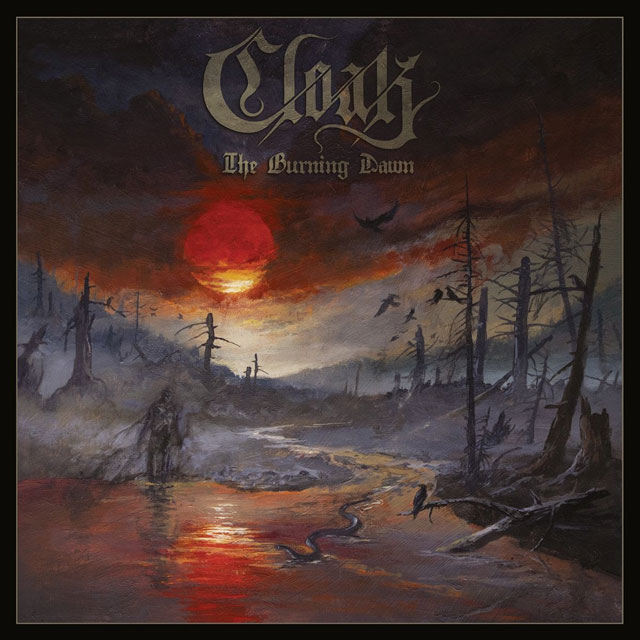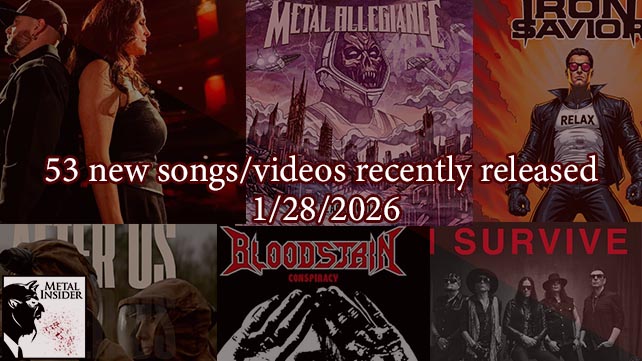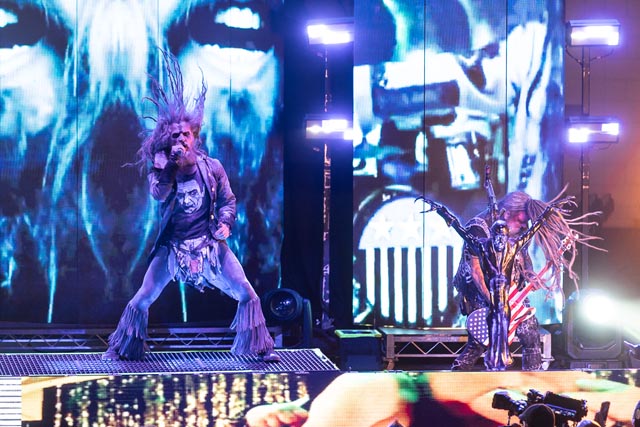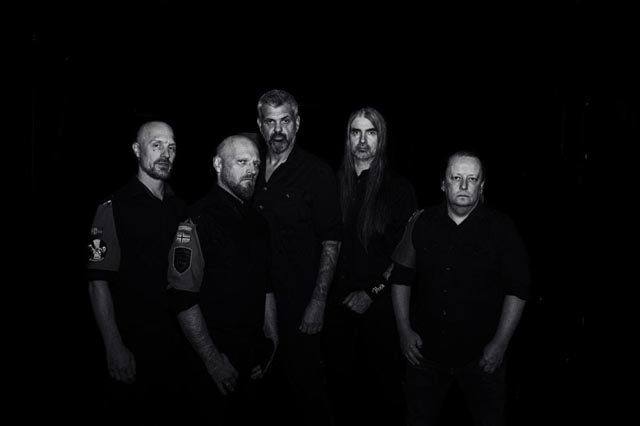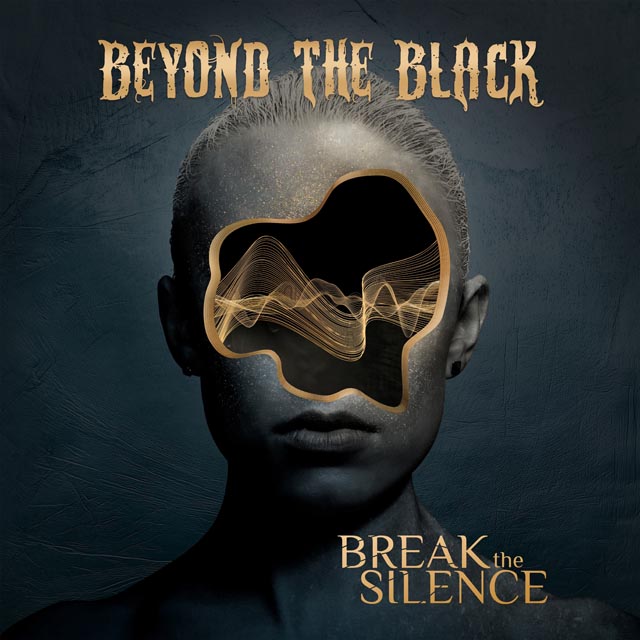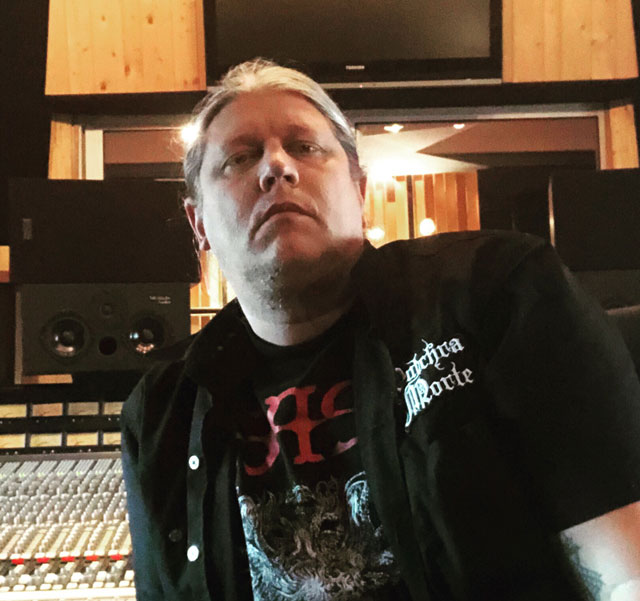
Jarrett Pritchard is a name that we keep hearing more and more in the world of extreme metal. Pritchard made his mark in the Tampa death metal scene in the early 90’s with Eulogy. More recently he became a member of Wolvhammer and he started a new band called Pulchra Morte. But Pritchard has become one of (if not THE) hottest sound engineer in the world of metal. He’s the one responsible for the incredible sound on the more recent Goatwhore and 1349 tracks. Quite honestly, 1349 sounds better and clearer than they ever have and Pritchard’s engineering is a big reason for this.
Jarrett just finished recording 1349’s stunning new record The Infernal Pathway which will be released on October 18th on Season of Mist records. We caught up with him to discuss 1349’s new album, and more.
Can you tell us how you initially got into working with bands like 1349 and Goatwhore?
There are two sides to that- how I got involved in extreme music and how I became an engineer. Basically I started a band from Tampa Called Eulogy in 1989 and got very involved in the death metal movement. We played. I stopped and I went on to mix television. I had a few small recording studios, stayed in touch with friends over the years- taught at a university- and was just always involved I guess.
With 1349, Tony Laureano who was playing drums for them at the time asked me. A tour came up he asked me to do it. I was very apprehensive to be honest.
But I took the job. When I met them we just got along really well and became friends and have worked together ever since. The thing is that if you are reliable and know what you are doing and can adapt and take it seriously people notice. And then I just started getting calls. Specifically Goatwhore. I’ve known Sammy for a very longtime, since the Acid Bath days. As far as how I became a engineer, well, I grew up in the theater. My dad was a musician and my mom was an actress. My dad went on to be an acoustics engineer for an aerospace contractor who incidentally was at Langley and worked for NASA.
I started playing when I was a little kid and engineering just went with it. It was always around. One day I decided to do it full time as a life path.
We’ve been listening a lot to the new 1349 record, The Infernal Pathway, A LOT these past few weeks. Of course, working with a band like 1349, there are an awful lot of sounds going on in the same time in the mix. But just like with MCoC, the listener can really hear all the little nuisances. What’s your strategy going into a recording session with bands like this?
Well, I guess the very first thing that I do is, I try to figure out what exactly the band is trying to do. Once I figure that out I sort of look at what sound fits their song. I mean you couldn’t be necessarily playing blast beats and tell me you want to sound like Led Zeppelin. The two things are sort of contrary to each other in a way, so once I figure out what they’re trying to do I basically just go in and try to get the best tones possible with the time allowed and gear available. I always try to go for performance first. Editing is kind of a last resort. I don’t ever go into a record saying, “OK well I know I’m going to edit those so I’m gonna clean this up.” As a matter of fact, as far as timing editing goes, I don’t do any of that on either of the records you mentioned. There are kick drum samples obviously. I used a reinforcement sample on the last record underneath the actual snare but the microphone is still the primary sound you hear.
I guess the approach really breaks down to the feeling, especially with the vocals. When I’m recording vocals it’s kind of like painting a picture. It really just kind of comes to me and makes it self apparent. I have a real sensitive cringe mechanism, so if something is super typical or if someone over-stretches syllables to try to fill a space or if the vocals are just dumb it really freaks me out so I’m really sensitive towards it. I’ve also been lucky enough to work with some of my favorite vocalists and some of the best. Ben Falgoust, Ravn, Adam Clemens are fantastic, and I’m probably a little biased but Jason Barron. And that’s only a few. I’ve been really fortunate to have worked with a lot of the people that I have.
I noticed the drums on The Infernal Pathway sound particularly crisp and clear without overpowering. For example, the last 60 seconds of “Abyssos Antithesis” features some rather outstanding work from Frost where he currently has this amazing symbol work on top of intense blast beats. What was it like recording that?
Recording Frost is literally like capturing lightning. I basically tune the kit and mic it up. There are some challenges as far as phase relationships because there are so many mics. In this case there were six toms. I was on a 1975 Neve. Although, a lot of the eq and pres had been updated (I looked at the back of the Modules).
The biggest trick is that Frost comes in he has a warm-up routine he does and then it’s go time and we usually run through the song maybe four or five times straight through and that’s it for each song. He is an extremely physical drummer, is extremely consistent and he genuinely puts every ounce of himself into each take so after we do a few passes that’s about it for a little bit. Once you capture it, it’s just technique looking for problems, fixing them without being too destructive ( I’m talking frequency here folks). I used a couple secret weapons on that one. Things I don’t normally do. I didn’t want it too clean but I wanted it clear.
What are some of the biggest challenges recording metal music these days?
The first one is budgets. No matter what you do it takes a tremendous amount of time to do a proper record and a lot of bands are not being given the funding based on where they are with being able to execute the material. Practice Practice, folks. Time is money. Really hour for dollar. It’s probably not even minimum wage sometimes.
The next is the sampling and profiling. I’m not going to go on a big tangent here but if every single engineer has access to the exact same sounds and no one is forced to learn to tune their drums or how to dial in an amplifier all the records are going to sound alike and while yeah it might be good, they aren’t going to be different and listening to music isn’t going to be diverse. If you walk into a studio and the engineer has all the gear set up and doesn’t even listen to yours, you have to ask yourself, am I gonna leave here sounding like my band, or every other band recorded here? It’s a valid question.
And finally, I guess it’s like it has always been performance shows. I just don’t want my records to sound alike and I want them to have feeling and represent who the artist is. I see them as individuals. I look at my influences recording wise and they are all so diverse. Bands sound like them selves. I don’t want to make your band sound metal. I want to make your band sound like the best version of you. SO Practice. Intention is recorded. With budgets being what they are coming in rehearsed helps soften the Blow a bit.
You also are FOH engineer for a number of bands. Can you tell us how FOH sound is different than studio?
The biggest difference is that the environment is not controlled. Many times you have only fifteen minutes to do a changeover and pull together line check and go, especially if you’re in a direct support slot or on a festival. I think that the most important thing about either is controlling the listening environment and getting the PA or the monitoring system of the studio to a reference point where you actually know what you’re listening to. In a venue, if I have the time and ability just to align the PA and tune it is all the difference in the world. Most of the time I have a lot of say in what’s going on on stage. Time wise, so really as long as the PA is semi tubed properly I don’t have to do much more then. Then point a microphone at it.
I also work really fast and that was a skill that came over time. I am already moving the second I hear something come up. I can kind of already know what I’m going to do on the console for most instruments which makes it easier to dial in. Given time, I’m happy to tweak the nuance of your toms for twenty minutes each. But in reality, time is the enemy and you better have a tool box in your head to pull from very quickly.
Do you have any favorite venues for working FOH?
Red Rocks, The Greek Theater. Oh wait, you meant in metal hahahahahhahhhaha, I’m kidding. I love the Gramercy Theatre in New York City. I’ve always Enjoyed Reggie’s in Chicago, and honestly, I always have Banging shows at the Roxy in LA.
The Warfield in San Francisco is intense because from what I understand it is tuned by the Myer guys. It sounds amazing. And The Wiltern, I just mixed Triptykon doing a Celtic Frost set there at the Decibel Metal and Brew festival and had a great time. I was really enjoying the mix.
Your new band Pulchra Morte released their first LP this past year. You play guitar in this band. How did this group come about and what’s happening in the future for Pulchra Morte?
Pulchra Morte today is myself and Clayton Gore who was the drummer for my old band, Eulogy. And some other friends of ours, Jason Barron from Harkonin, Jeffrey Breeden from Leagues Below, and Dylan Kilgore from the band Withered. We completed the first record and we’re about to return to the studio to start on the second. We’re gonna keep making records we like.
We are going to keep putting them out and play when we can. We are about to Play Full Terror Assault festival and we are really looking forward to it. I have some other dates with some cool bands in the works. As for how it came about, Clayton, Jason, and Jeff had some demos of the songs. Clay asked me to do bass on the Demos. I really liked the material. I suggested we form a partnership and I would produce the records and play guitar, and then we were off.
What advice would you give to folks who are interested in becoming FOH engineers or recording engineers? Is it a tough business to break into?
I guess you save the hardest question for last. First of all, learn your craft. There’s more information available in your telephone than there was the entire time that I was learning how to do this. If I had had the information available to me that’s out there now, it would’ve been mind blowing. Learn the history, learn how things used to be done. I don’t think necessarily that the technology has made things better. The way that we used to record things, the way we had to commit to sounds was important. It was what was going on in front of the microphone far more than how we could fix it after the fact. There’s a whole world just in the way you point a microphone. Pay your dues, don’t roll into your town immediately driving the prices down where you’re selling a less than suitable product for way less money. Ultimately, it hurts your own job market if you come into an area where there are people already working and you say, ‘oh I’ll work for two dollars an hour.’ That’s great for you getting work but one or two years from now when you want to get paid like an engineer you can’t because you helped drive the market down, you only have yourself to blame.
Most of all just don’t give up. Tenacity is important. With the market so full of people who want to be engineers (notice I said “want to be”), it can be very difficult to break in. You kind of have to expect that there will be some start up time.
Learn from everyone you meet. Don’t ever stop, don’t be afraid to share ideas. Talking to other engineers is fun and only you have your perspective on the subjective nature of “good.”
Pick good reference material. I still pay attention to what’s coming out, how people are doing things, where we are in the loudness game. I still read constantly and I’m still learning all the time. That’s what I love about it.


